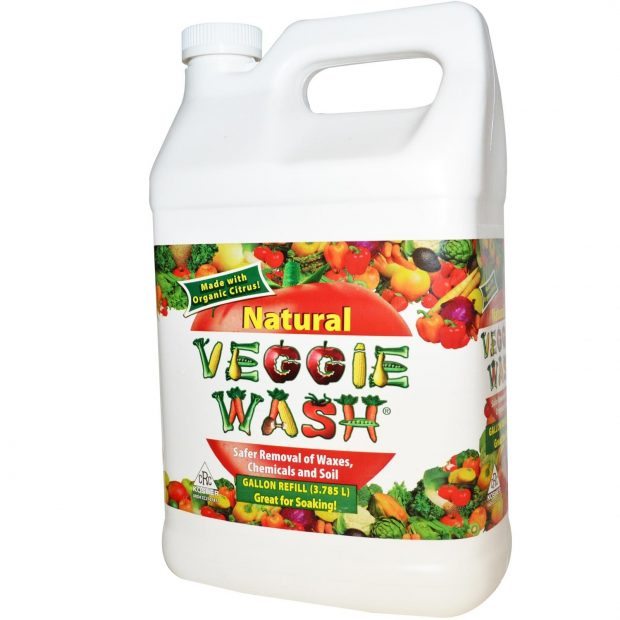No, we don’t want you to run for cover, but we do want you to stay healthy. And what better way to do that than to be in the know. Kowledge is power after all, right?
In recent news, we’ve come to find that over 200 people in U.S. have fallen ill with a suspicious stomach bug. While at first officials were dumbfounded as to the what, why, or how this could be, there’s nothing some good research can’t discover. The stomach bug in question? A parasite that goes by the name of “cyclospora”.
Think this is just a mild case of the “runs”? Think again. Cyclospora is a one-celled, microscopic parasite that causes weeks or even months of severe intestinal damage and illness. Symptoms largely associated with the parasite include [explosive] diarrhea, cramps, nausea, fatigue, loss of appetite, and ensuing dehydration. Yikes.
We think the most frightening part, however, is the length of time the parasite continues to wreak havoc in your gut. Many times the infection can resolve on its own, but who is willing to suffer for weeks on end? Luckily, antibiotics can speed recovery and reduce these gruesome symptoms. Don’t be so sure that it’s gone though. Many have been said to relapse a few more times even after taking the prescribed antibiotics.
It sure seems like a nasty (and persistent!) little bug doesn’t it?
Unfortunately, while you might think that such viruses can only be contracted in far and obscure countries abroad, it looks like this epidemic is happening right in our backyard. Most of the cyclospora infections have been centered around the Midwest, with the majority of the cases in Iowa and Nebraska. In addition, many of those who contracted the parasite had not left the states previous to falling ill, proving the theory that this issue should be addressed here.
Being aware of what the problem is and where, however, is only half the battle. What the exact source is has not yet been pinpointed. Nevertheless, the cyclospora parasite has been known to most commonly be found in fresh produce – such as fruits and vegetables – grown in tropical and subtropical regions. Whether its the produce itself or the unsanitary irrigation methods used to grow produce, the lack of knowing what single or multiple contaminated products are responsible is frightening.
Obviously the best method to steer clear of this would be to avoid the incriminating produce, but due to our lack of knowledge of what that is, we want to offer you 5 ways to keep your gut healthy. Granted, we can’t guarantee these steps will keep this particular parasite from making a home in your bowels (ew!), but you will definitely be way ahead of the person who isn’t trying to do anything at all!
Plus – if anything – you’ll be one step closer to health! As Hippocrates once said, “All disease begins in the gut.”
1. Wash your fruits and vegetables (thoroughly).

Seriously, wash your veggies and fruits you guys! I’ve seen so many of my friends take an apple and just bite into it (without washing)! That’s just asking for trouble. If you want to really get that “deep clean” invest in veggie wash. Might sound like a weird concept, but we promise it does not taste like soap. If anything, it gives you more of a guarantee that you’re eating all the good stuff and leaving the bad at the sink.
2. Take probiotics.

Whether you’re eating probiotic-rich yogurt, fermented foods (such as kimchi, miso, kombucha, etc.), or simply popping a probiotic pill in regularly, you’re in luck. These good bacterias are designed to correct imbalances in your gut and can even help fight off the bad bacteria that might be festering in there!
3. Eat fibre-rich foods.

While what goes into your body is important, so is what comes out. It’s important to stay regular in order for your body to cleanse itself and stay in peak condition. If you want to make sure your body will digest your intake efficiently, strive for 20 – 25 grams of fibre a day. You can get this from fruits and veggies or even grains such as oatmeal and brown rice.
4. Try stomach – soothing spices.

Try to choose spices known for alleviating gas and bloating. These include (but are not limited to): caraway, cardamom, cinnamon, cumin, fennel, ginger, and nutmeg and are typically known as “carminatives”. In addition, these well-known spices are known for aiding the digestive process. Like we said earlier, it’s important what goes into your body but also that it comes out! Mix some cinnamon and oatmeal together for a double-pow of the soothing effect both from the spice but also from the oatmeal. Known as a “demulcent” – meaning that it gets soft and slippery once cooked – oatmeal will coat your stomach in easy-to-digest, fibre-rich, goodness.
5. Practice stress relief.

Lastly, one of the most important things to consider is mental health and stress relief. Ever heard of that saying, “sick to my stomach”? Well, it’s no surprise that how calm and balanced you’re feeling mentally can affect symptoms in the gastrointestinal tract such as low immunity and bloating.
How do you keep your gut healthy?









![Daily Bite [Make]: Philly Cheesesteak Stuffed Bell Peppers](https://dashofwellness.com/wp-content/uploads/2013/01/Philly-Cheesesteak-Stuffed-Pepper-Daily-Bite-1-100x70.png)
